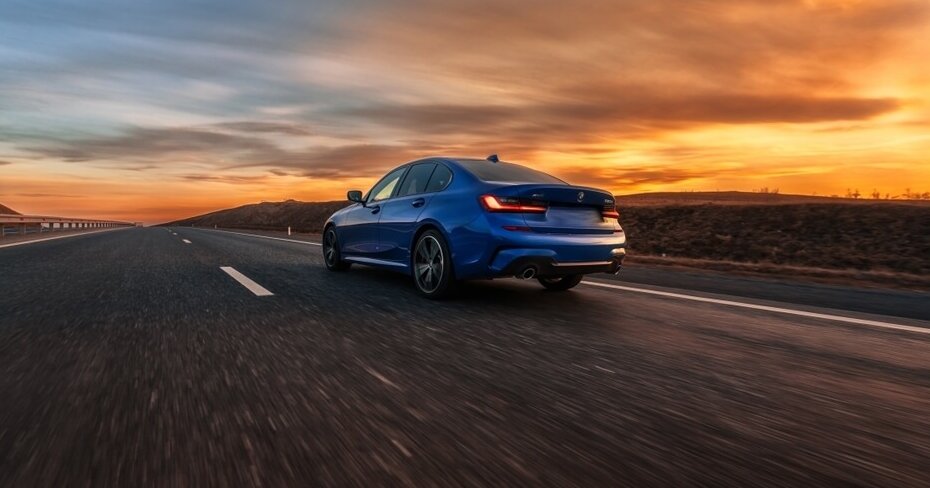The Fast and the Curious: Should you buy a sports car?
By: Steven Brennan on December 10, 2024
Sports cars are often in the news for all the wrong reasons, but nevertheless sales in Canada seem to be cranking up. A Q3 sales report from this time last year, conducted by DesRosiers Automotive Consultants, recorded a huge 45.5% increase on year-to-date sales for luxury sports cars.
We all know that sports cars are pricey, but how do these models stack up with others when it comes to insurance, fuel and maintenance? And what do you do with a Lamborghini Aventador in the Canadian winter? And if I put custom rims on my Ford Focus, does that mean I own a ‘sports car’? (Ok, maybe not that last one.)
What makes sports cars unique?
Pioneering sports cars, like the 1914 Vauxhall Prince Henry and the 1910 Austro Daimler (designed by Ferdinand Porsche) were made with two things in mind: performance and pleasure.
To this day, the sports car is essentially an attempt to match the handling, acceleration and top speeds of a competitive racing car with the pleasure and comfort of a reliable, easy-to-drive road car.
Fast forward 120 years, Vauxhall and Porsche, along with many other car manufacturers, are still contributing to a sports car industry that is reported to be worth over $100 billion USD per year. That said, it’s a much wider market today that has expanded the definition of a ‘sports car’ to include more affordable models, like the Mazda MX-5 and the Ford Mustang.
Typically, because of their focus on cutting-edge engineering, high-performance and prestige, sports cars have always come with larger price tags. In Canada, the cost of a new sports car in 2024 ranges widely, from a $35,000 Mazda MX-5 Miata to a $135,000 Porsche 911, and far beyond.
If you’re in the market for a used sports car, your budget could start as low as $25,000 for the most affordable models between two and five years old.
Premium coverage, premium gas and more
The higher cost of sports cars and other luxury vehicles doesn’t stop at the price tag, however.
The combination of high horsepower, higher theft rates, greater risk of accidents and the potential for expensive repairs all add up to a much higher insurance premium. Sports cars can often require specialized maintenance from expert garages, as well as premium fuel, which is guzzled up fast by high-performance engines, all adding further to the overall expense.
Annual insurance premiums for sports cars in Canada will typically range from $2,500 to $5,000 or more, depending on the model and your own driving record. This is well above the average that falls between $1,500 to $2,000 in most Canadian provinces.
Some manufacturers even have dedicated insurance packages, such as Porsche Insurance, which offers a customized insurance program designed specifically for Porsche owners.
Winter storage can also be another expense to consider, as high-end sports cars can be particularly sensitive to extreme temperatures, especially if they sit unused for long periods.
If you don’t have the garage space, you may want to fork out for secure, climate-controlled indoor storage. And if you do, you may need to spend both time and money making sure you’ve got a totally dry, mold and moisture-free hideout for the winter season.
Related: Should you get your car serviced at an auto shop or a dealership?
Upgrade your insurance
With so many expenses to factor into your budget, actually getting and keeping your sports car on the road may take a little further consideration, financially.
It can be helpful to remain as objective as possible when evaluating whether or not you can really afford a certain model.
In addition to all the expenses mentioned above, you’ll also want to think about depreciation, and how long you’re likely to keep your car. If you want to drive it for at least five years, what’s the depreciation rate going to look like, and how much value can you expect to recoup when you trade in or sell?
More affordable models, like the Ford Mustang, will hold their value better than others. And although some high-end car brands may have depreciation rates that don’t look too high comparatively, the higher MSRP is going to drive that overall loss far beyond that of standard vehicles.
For these reasons, sports cars and other high end vehicles are prime candidates for Guaranteed Auto Protection (GAP) insurance, especially if you’re planning on a trade-in down the line.
This endorsement is designed to cover you in the event that your car is written off or stolen, with a depreciated market value that is lower than what you still owe on your car loan. For models that depreciate relatively quickly, a GAP add-on could save you a few extra grand out of pocket if your car was to be totaled.
Seasonal car insurance could be a necessity, too, allowing you to adjust your coverage according to your usage, which could be reduced to zero in the winter months.
And if you’re lucky enough to own a rare or collectible high-end vehicle, then Agreed Value Coverage (or collector car insurance) is likely to be a more fitting policy approach that can protect you against an unpredictable market.
But no matter which set of wheels you climb into, above all you’ll want to be sure it’s a smart fit for your lifestyle, your needs and your wallet.
Read more: 10 most and least expensive vehicle brands to insure in Ontario
Save 23% on average on car insurance
Compare 50+ quotes from Canadian providers in 3 minutes.


.jpg?itok=88nBkwga)